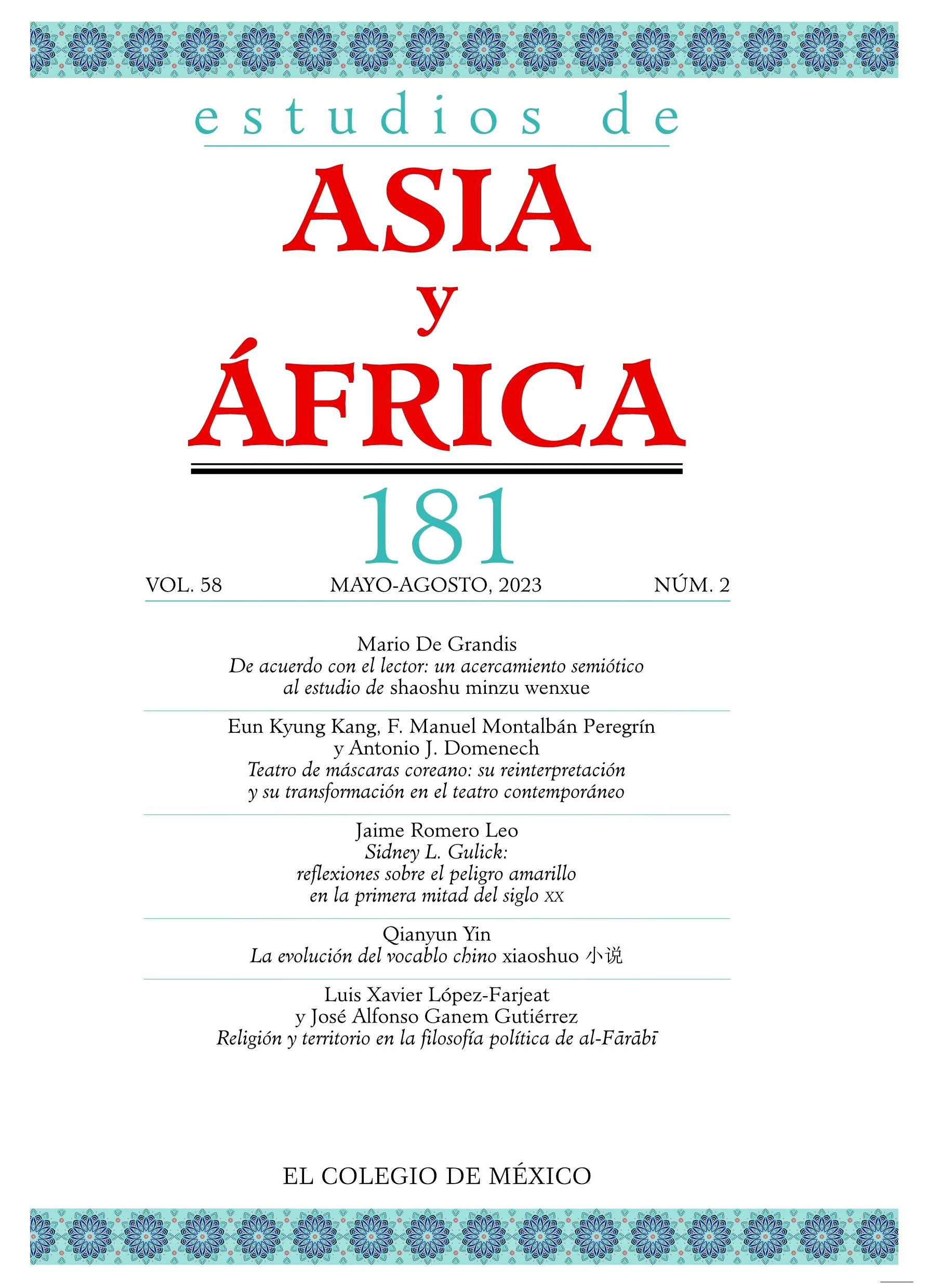Abstract
This article aims to research several of the historical processes that laid the foundations for the so-called yellow peril emerging in the first half of the twentieth century in the United States. The rhetoric of the yellow peril fueled the West’s fear of Asian people and this rejection eventually translated into specific, racist policies in countries like the United States. This anti-Japanese fervor was occasionally promoted by the North American media, such as in the case of William Randolph Hearst’s newspapers. In this context of international and racial tensions, public figures like Sidney Lewis Gulick attempted to support the concord and friendship between Japan and the United States through books, press reports and the founding of associations in favor of international relations. Gulick approached this kind of rapprochement from a critical perspective towards the role of the West in East Asia. As he viewed it, Westerners should start from the premise that the “yellow peril” had a predecessor it derived from, the “white peril”; that is, the threat posed by Western colonialism for a large part of Asia.
References
Berkove, Lawrence I. 1992. “A Parallax Correction in London’s ‘The Unparalleled Invasion’”. American Literary Realism 24 (2): 33-39. https://www.jstor.org/stable/27746486
Bharucha, Rustom. 2014. Another Asia: Rabindranath Tagore and Okakura Tenshin. Nueva Delhi: Oxford University Press.
Goberna, Juan Ramón. 1999. Civilización: historia de una idea. Santiago de Compostela: Universidad de Santiago de Compostela.
Gulick, Sidney L. 1903. Evolution of the Japanese: A Study of Their Characteristics in Relation to the Principles of Social and Psychic Development. Nueva York: Fleming H. Revell.
Gulick, Sidney L. 1905. The White Peril in the Far East. Nueva York: Fleming H. Revell.
Gulick, Sidney L. 1914. The American Japanese Problem. Nueva York: Charles Scribner’s Sons.
Gulick, Sidney L. 1917. Anti-Japanese War-Scare Stories. Nueva York: Fleming H. Revell.
Howell, Thomas. 1997. “The Writers’ War Board: U.S. Domestic Propaganda in World War II”. The Historian 59 (4): 795-813. https://doi.org/10.1111/j.1540-6563.1997.tb01376.x
Iglesias, Julio César. 2019. “Imágenes del Japón en Occidente: representaciones culturales y usos sociales”. Tesis de doctorado, Universidad de Oviedo. http://hdl.handle.net/10651/54155
Mishra, Pankaj. 2019. De las ruinas de los imperios. La rebelión contra Occidente y la metamorfosis de Asia. Traducido por Alejandro Pradera. Madrid: Galaxia Gutenberg.
Laguna, Alberto. 2019. “La quinta columna que dinamitó la Guerra Civil tras las líneas republicanas”. El Mundo, 3 de mayo de 2019. https://www.elmundo.es/cronica/2019/05/03/5cc1eb32fc6c830c458b46b5.html
London, Jack. 1970. “The Yellow Peril”. En Revolution and Other Essays, editado por Jack London, 271-289. Nueva York: Macmillan.
London, Jack. 2003. “Una invasión sin precedentes”. En La plaga escarlata y catorce cuentos fantásticos, editado por Dale Walker y traducido por Miguel Giménez Saurina, 144-158. Barcelona: Abraxas.
Niiya, Brian, ed. 1993. Japanese American History: An A-to-Z Reference from 1868 to the Present. Nueva York: Facts on File.
Peiró, Marisa. 2013. “Japón el enemigo. Imágenes propagandísticas en torno a la Segunda Guerra Mundial”. En Japón y Occidente. Estudios comparados, editado por Carmen Tirado, 347-362. Zaragoza: Prensas de la Universidad de Zaragoza.
Robinson, Greg. 2021. “Sidney Gulick”. Densho Encyclopedia. https://encyclopedia.densho.org/Sidney%20Gulick
Rodao, Florentino. 2019. La soledad del país vulnerable. Japón desde 1945. Barcelona: Crítica.
Said, Edward. 2010. Orientalismo. Traducido por María Luisa Fuentes. Barcelona: DeBolsillo.
Shiel, Matthew P. 1898. The Yellow Danger. Sacramento: Grant Richards.
Weik, Taylor. 2016. “Behind Barbed Wire: Remembering America’s Largest Internment Camp”. NBC, 16 de marzo de 2016. https://www.nbcnews.com/news/asian-america/behind-barbed-wire-remembering-america-s-largest-internment-camp-n535086
This work is licensed under a Creative Commons Attribution-NonCommercial-NoDerivatives 4.0 International License
Copyright 2022 Estudios de Asia y África



